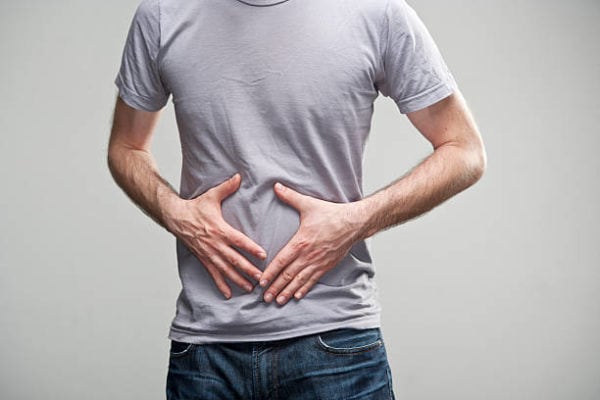Maintaining optimal gut health is crucial for your overall well-being. Many individuals are unaware of the impact that their gut health can have on aspects of their body, including back pain. One prevalent gastrointestinal issue that affects a number of people is constipation. In this blog, we will delve into how constipation can affect your back and explore strategies to enhance gut health.

Understanding Constipation and Its Causes
Can constipation cause lower back pain? Before you delve into the answer to this question, it is crucial to know what constipation is and its causes. Constipation arises when an individual experiences bowel movements or encounters difficulty in passing stools. Several factors can contribute to its occurrence:
1. Inadequate fiber intake: Insufficient consumption of fiber can lead to stools and slower bowel movement.
2. Dehydration: Insufficient water intake can result in stools that are challenging to pass.
3. Sedentary lifestyle: A lack of activity slows down digestion. Diminishes muscular contractions in the intestines, often resulting in constipation.
Recognizing the Connection Between Constipation and Back Pain
Frequent episodes of constipation exert pressure on regions within the body, including the back area. When we struggle with passing stools, it can create pressure on the surrounding structures like muscles, ligaments, and nerves in our back. This sustained pressure often leads to discomfort or pain in the area.
Moreover, people dealing with constipation may find themselves adopting postures or applying excessive force during bowel movements. These actions add strain to their backs over time, which can result in long-term consequences.
Approaches to Reduce Constipation and Backpain
With the following approaches, individuals can promote overall health by improving gut health. They will help reduce the likelihood of developing chronic constipation and alleviate associated back pain.
1. Increase fiber intake: Consuming a large amount of fiber-rich foods such as fruits, vegetables, whole grains, and legumes helps maintain regular bowel movements. It’s advisable to increase fiber consumption to minimize any discomfort.
2. Stay properly hydrated: Drinking an amount of water throughout the day helps soften stools and facilitates passage. It’s important to avoid intake of caffeine and alcohol as they can contribute to dehydration.
3. Engage in exercise: Regular physical activity stimulates contractions and improves overall gut health. Aim for 30 minutes of moderate exercise five days a week.
4. Make sure you sit properly: When you’re on the toilet, it’s important to maintain a seated posture. Sit with your knees positioned higher than your hips. You can use a small footstool to achieve the right position for easy bowel movements.
5. Listen to your body: Take note of any signs or symptoms of constipation and address them promptly. Ignoring these signals will only make the problem worse. May even result in pain.
6. Seeking professional advice: If, despite making lifestyle changes, constipation and back pain become chronic or severe, it’s always a good idea to seek professional medical advice from qualified healthcare professionals like primary care physicians, gastroenterologists, or physical therapists.
Understanding the Impact of Stress on Gut Health and Back Pain
Another factor to consider regarding gut health and back pain is stress. Stress can have an effect on how our digestive system functions by slowing down digestion. When we’re stressed, our body activates its fight or flight response, which can disrupt bowel movements.
Moreover, chronic stress can lead to muscle tension and tightness, both of which can contribute to pain. The connection between stress, gut health, and back pain underscores the importance of approaches that address not only physical factors but also mental and emotional well-being.
Also Read : Advantages of Using the Best Memory Foam Seat Cushion
Conclusion
There are factors that contribute to gut health, which is crucial for overall well-being. The relationship between constipation and back pain highlights one of these interconnected aspects. By understanding the causes of constipation, recognizing how it affects the back, and adopting strategies to improve gut health, individuals can reduce their risk of developing constipation while promoting spinal health in general. It’s important to remember that prioritizing gut health is key to leading a healthy lifestyle, avoiding pain, and staying physically active!
 Gearfuse Technology, Science, Culture & More
Gearfuse Technology, Science, Culture & More


